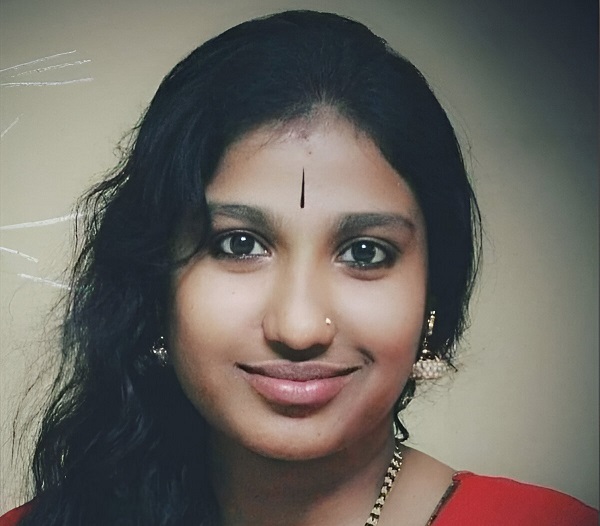Dr ANITHASHRI responds to ThinkWellness360 questionnaire.
Why and how did you think of becoming a doctor?
I vividly remember — when in Class I — our teacher asked us what we wanted to be as grown-ups? I responded — “I want to be a doctor.” I wasn’t, of course, sure why I said so, but when I was in Class III, I was taken to a doctor, whose name was — by sheer coincidence, or quirk — Dr Anitha. She too asked the same question. My riposte: “I want to be a doctor; nothing less.” It looks like that the thought came naturally to me. I was soon riveted to reading magazines, or watching TV shows related to biology and medicine. I even remember watching surgical procedures on TV channels without fear, or hesitation. Today, when I reminisce, it just seems like it’s all god’s gift, in more ways than one.
What made you think of, study, and specialise in the system of medicine you now practice?
I was brought up in Udupi, where consulting Ayurveda doctors for health issues is a norm. My family has consulted Ayurveda doctors from my childhood. The ease with which we were treated and its effectiveness had a great influence on me. Since I already had a firm resolve to be a doctor, I was naturally drawn to taking up Ayurveda, as my career, or professional, path.
What has been your personal and professional experience as a doctor?
It is a most satisfying experience to being a doctor, serving hundreds of patients every day. More so, when patients who come with anxiety go back with a smile — of contentment. It is also truly satisfying when patients meet the next time with their issues treated. Nothing can match my happiness when they usher on me their full-hearted blessings. Personally, it may, sort of, wobble our work/life balance. Add to it our long working hours, or work on all days, including special occasions, it affects our family, also ‘me-time.’ This is nothing, but part of it all, but at the end of the day, you feel blessed, thanks to its lofty, fulfilling ethos — a profession like no other.
What unique and special skills you think you have that has made the big difference for your patients?
This is a trait, not a skill, I picked up — to listen to patients and learn their history to arrive at the ‘root cause.’ This happens, most of the time, with a casual conversation. Usually, what patients come with is a symptom, and unless we go deep into it, we may not arrive at the right diagnosis. So, yeah, this helps a lot.
What is your best definition of optimal wellness and why?
I concur with what Acharya Suśruta has accurately defined as swastha, the healthy person.
समदोषः समाग्निश्च समधातु मलक्रियाः |
प्रसन्नात्मेन्द्रियमनाः स्वस्थः इत्यभिधीयते ॥
Optimal wellness is being healthy, when the tridoshas [vata, pitta, kapha], the digestive fire, sapta dhatus [body tissues and components], and all the physiological processes, are in perfect unison — what with the sense organs, the mind, body, and soul, being in a state of complete, harmonious balance and contentment [prasanna].
Your ‘best’ case?
There are many ‘best’ cases, but what I felt extremely satisfying was a couple who were able to conceive with Ayurveda medicine — after taking just about every other treatment possible without success. This brings happiness not only to the patient, but to the whole family — that I felt humbled, also blissful. The other was a psychiatric case where the patient was unable to just work, like he’d done before. He was given counselling, along with Ayurveda medicines. He is leading a happy, active life now.
Your ‘not-so-good’ case?
We, doctors, are, after all, human beings, not gods — we just can’t treat anything and everything. So, every time a patient comes back with the same problem — though this seems bad — it is a learning curve for me to think differently and relook at the missing piece. Maybe, that’s one reason why our profession is called practice — our whole life is for learning something new from each and every case.
What appeals to you the most?
Ayurveda, I think, is the most scientific system of medicine. It not only treats, but also has guidelines for maintaining health at its optimum level, while enhancing one’s longevity. Probably, no other system of medicine too is as complete as Ayurveda, covering every aspect of life.
What annoys you the most?
The generic negative comments people usually make like: “Ayurveda is slow; Ayurveda medicines cause heat; Ayurveda is not for acute conditions etc.,”
Your favourite book?
Parva, a Kannada novel, by S L Byrappa.
Your favourite joke?
None in particular.
Your favourite song?
Jagadananda Karaka, in raga Naattai, by Tyagaraja, the saint composer of Carnatic music.
Your favourite movie?
All the animated movies.
Your favourite TV, Netflix show?
Friends, the American television sitcom, created by David Crane and Marta Kauffman.
Your other interests, or hobbies?
Reading books, writing articles on Ayurveda in newspapers, also stories and poems in Kannada, sketching, painting, and playing the veena, I am a good storyteller too to my kid. I love cooking. And, I love watching movies.
Your goal in life?
I truly believe I’m just a ‘tool’ in the hands of god. My goal in this life is to serve as many patients as I can and bring happiness, in the best way possible, in their lives.

